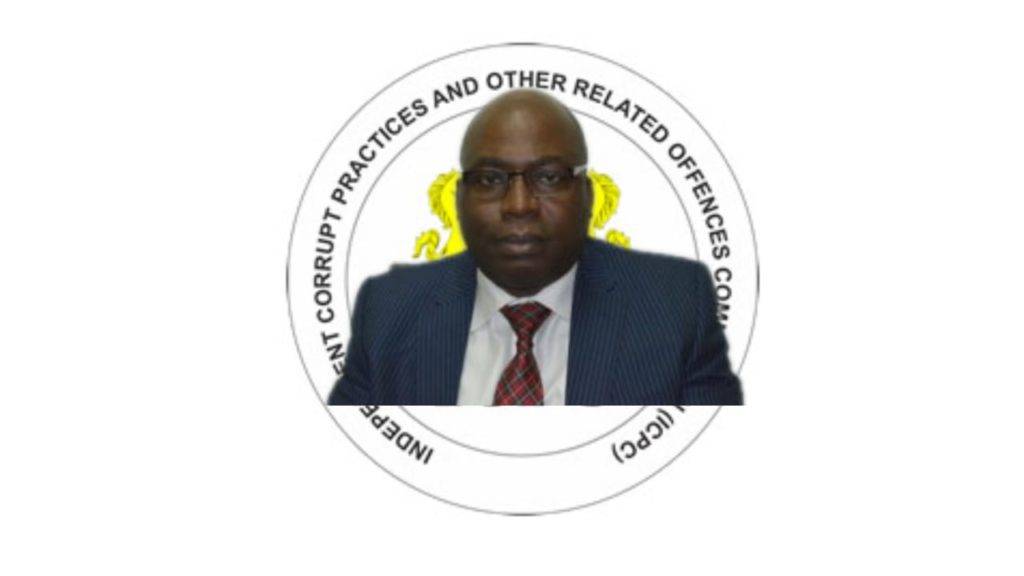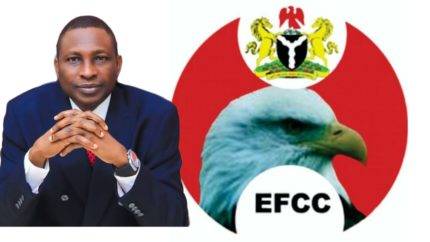In a startling revelation, the Economic and Financial Crimes Commission (EFCC) has launched an investigation into alleged corruption within the Ministry of Humanitarian Affairs. The Independent Corrupt Practices and Other Related Offences Commission (ICPC) has, in the course of this investigation, recovered a substantial amount of N50 billion originally designated for vulnerable citizens. This fund, part of the National Social Investment Programme Agency, was discovered to have been mismanaged during the naira scarcity between late 2022 and 2023.
Sources indicate that the ICPC, led by Prof Owasanoye, first blocked and recovered N32 billion, and upon further investigation, an additional N18 billion was traced and recouped from the ministry. The funds were initially intended for poverty alleviation projects, specifically to aid the vulnerable and poor populations in the country. However, the former Minister of Humanitarian Affairs, Sadiya Umar-Farouq, faced challenges in distributing the money due to currency shortages during the naira redesign period.
President Tinubu Orders Return of Recovered Funds for Infrastructure Support Amidst Embezzlement Allegations: EFCC
Following these revelations, President Tinubu has taken decisive action by ordering the return of the recovered N50 billion to the Ministry of Humanitarian Affairs. The President has earmarked these funds as part of the Infrastructure Support Fund for all 36 states and the Federal Capital Territory, aimed at mitigating the impact of the fuel subsidy removal. This move comes amidst swirling allegations of embezzlement and mismanagement within the ministry.
The refunded sum is reported to be part of the larger N44 billion allegedly laundered within the National Social Investment Programme Agency. Additionally, the ICPC discovered that former Minister Betta Edu had authorized the disbursement of N585 million during her tenure. It’s worth noting that the funds were nearly disbursed into private accounts during a period when the ministry was without an active minister. The ICPC promptly intervened, blocking the suspicious transaction and ensuring the recovery of the funds. President Tinubu’s directive signifies a commitment to transparent governance and redirecting misappropriated funds towards critical infrastructure initiatives.

Allegations of Civil Servant Involvement: EFCC Advocates for Stringent Measures
The press release concludes with a call for increased scrutiny on civil servants, asserting that “Every corrupt act is masterminded by the civil servants 100%.” The statement advocates for thorough investigations into directors and management staff of Ministries, Departments, and Agencies (MDAs) who are implicated in corrupt practices. The @officialEFCC (EFCC) emphasizes the need for fingerprints as signatures on contractors’ corporate accounts and Corporate Affairs Commission (CAC) documents to enhance accountability and prevent fraudulent activities.
In summary, the unfolding scandal within the Ministry of Humanitarian Affairs, involving the misappropriation of funds intended for vulnerable citizens, underscores the importance of robust anti-corruption measures. President Tinubu’s intervention to redirect recovered funds towards infrastructure projects aims to restore public trust in the government’s commitment to accountable and transparent governance. The call for increased scrutiny on civil servants reflects an ongoing effort to root out corruption at its source. . . Outpour of Public Outrage and Demands for Investigation by EFCC.
In a shocking revelation, the Ministry of Humanitarian Affairs and Poverty Alleviation in Nigeria is now at the center of a colossal corruption scandal. The magnitude of this scandal has sparked widespread outrage among Nigerians, who are expressing their frustration and anger towards both civil servants and politicians involved. Social media platforms, particularly Twitter, have become a battleground for citizens demanding accountability and swift action.
Johnson, a prominent voice on Twitter, has been vociferously calling for a thorough investigation into the ministry’s civil servants, ranging from Permanent Secretaries to Directors and Heads of Departments. Allegations suggest that many of these officials may have used ill-gotten gains to acquire properties in Abuja and their respective villages. The public sentiment is one of disbelief, as citizens grapple with the implications of corruption within a ministry tasked with addressing humanitarian needs and poverty alleviation.

Economic Ramifications and Calls for Anti-Corruption Measures: EFCC
The impact of this corruption scandal extends beyond public sentiment, as Akintunde, a commentator on social media, highlights the connection between embezzlement and the devaluation of the Naira. According to Akintunde, the hefty funds siphoned off by corrupt officials could contribute to the ongoing depreciation of the national currency. Concerns are raised about these funds finding their way into private pockets and potentially being converted into foreign currencies, further destabilizing the economic landscape.
Another Twitter user, with the handle ‘naval gunner,’ emphasizes the stark contrast between the struggles of citizens over small amounts of money and the grand scale of embezzlement. The disparity is jarring, leading to a call for stronger measures against corruption. The user expresses disbelief at the apparent lack of traceability, prosecution, and recovery of the embezzled billions, pointing fingers at financial institutions and the Central Bank of Nigeria (CBN) for their role in curbing corruption.
As the nation grapples with this revelation, the sentiment is clear: corruption remains a formidable obstacle to Nigeria’s genuine development. The call to action is resounding, with citizens demanding that corruption be eradicated to ensure the nation’s progress and the well-being of its citizens. The onus is on authorities, financial institutions, and regulatory bodies to address this monumental issue and restore public trust in governance.
Table of Contents
Discover more from OGM News NG
Subscribe to get the latest posts sent to your email.














